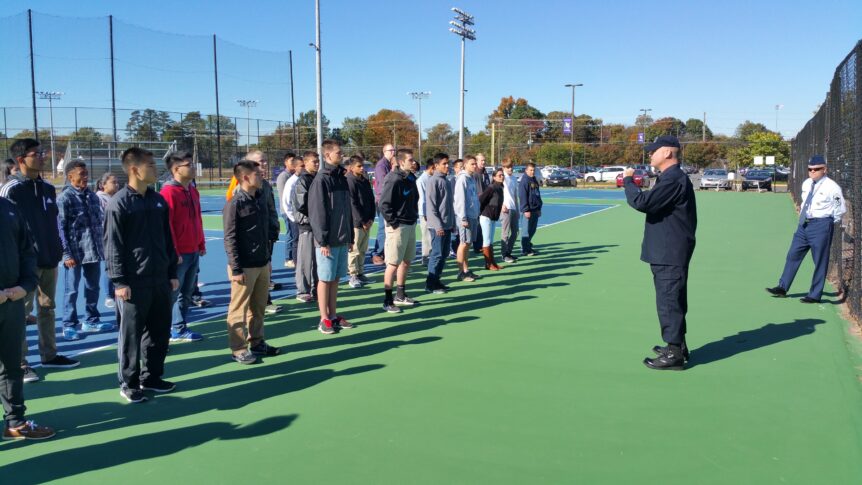That is a very good question. So, just what are drill meet judges looking for? In general, they don’t know.
Drill meet judges are not trained, they are briefed about an hour before the competition. Some get their briefing a day prior. It’s still a briefing, it’s not training since no one involved has enough time to readily digest and process the new information and then practice applying the info. This includes drill meets that I’ve run.
Any time I have introduced my adjudication system, I always get an instructor, almost always an officer, who says, “We need an ‘easier’ system for judging” or “you know we have this score sheet that has 50 lines on it so you can give a score for each [regulation sequence] move.” There are other similar resistant statements, but no one likes change, even if it’s for the better. Why? Laziness and a woeful lack of understanding.
The question comes back to what the judges are looking for. If they are untrained (some have a good amount of experience), then how do they know how to judge? They don’t know, they rely on the briefing and the natural human instinct.
The Natural Human Response
Reaction. Any time we see a movie, or some type of performance, Tomb Guard change, a play, musical, or concert, etc. We naturally react. That reaction is based on whether we like or dislike something and that’s fine. We will see a performance and not like the music, the singer, or dancer because it’s just not our cup of tea or we will like it for similar reasons. It’s all personal preference, what we call our bias.
Our bias can limit our exposure to something new and keep us closed off. That’s not always a bad thing, God gave us our personal tastes for a reason. But, lack of exposure to different types of performances, for an ROTC competition judge, will limit the ability of the judge to understand the different aspects of an exhibition drill performance and therefore affect the scoring negatively. That “negative” affect can lead to a lower or even inflated score. Both being unfair to all teams present.
For regulation drill sequences (squad, platoon, and colors), reaction is going to be based on training and how one thinks a certain position, move, or technique should be accomplished. Just because one graduated Basic Training or Boot Camp does not an expert make (but that seems to be the only criterion to be a judge). Likewise, just because one is or was a Drill Sergeant or Instructor, also does not make one an expert in drill and ceremonies. Yes, the trainers assigned to indoctrinate civilians into the military do have a certain level of a higher understanding of D&C, but it’s still not enough to accurately adjudicate a performance.
Reaction does have a place in adjudication, it’s called General or Overall Effect. We are to react to the effectiveness of the performance, but it must be based on standards which means there is no room for bias. That takes training.
Analysis
We are not born with a natural analytical response, although we can develop it to a certain extent. To analyze a drill performance, there is no reaction based on like or dislike and no bias. That takes training.
The Bases of Adjudication
- A written standard from which all judging is formed.
- A score sheet that takes into account the “What” and the “How” captions of a performance.
- Must have a single score for each caption and a total of both, not scores for each independent move (many regulation sequences) as this keeps the judge’s eyes off the performance. Halts here and there help a bit, but there is too much writing and not enough concentration on the performance.
- Must have a scaled scoring system based on the written standard.
- Must be focused on education and not merely providing a score.
- Ranking and Rating
- Judges must know the difference between the two and that ranking comes first.
- A judge’s personal scoring guide allows the judge to rank performances based on the written standard, previous performances, and then provide a score.
- A system that has a judge narrowly focused on only one aspect of the performance (Effect, Movement and Equipment, and Analysis).
- A scoring system that allows for rewarding achievement. Nothing out there does this except the WDA system.
The World Drill Association Adjudication System
The WDA system has everything.

